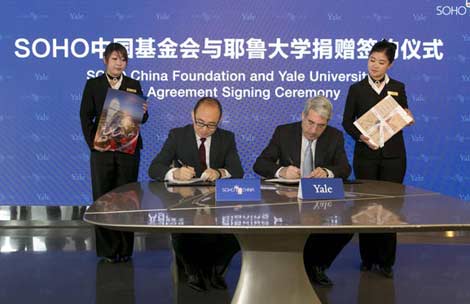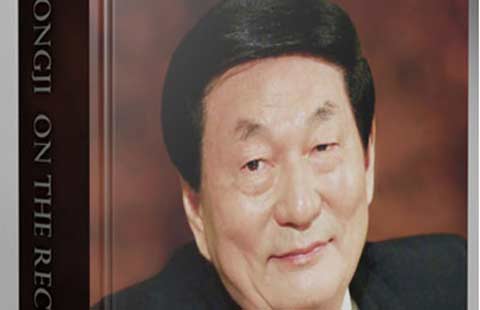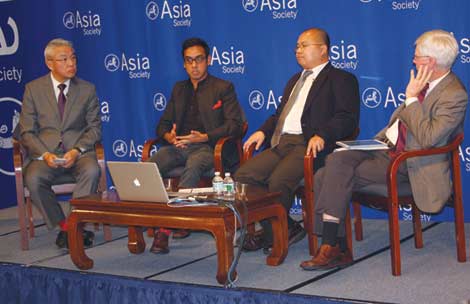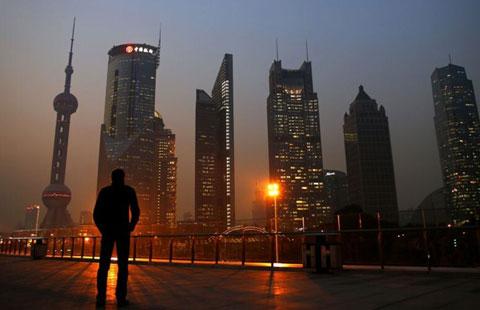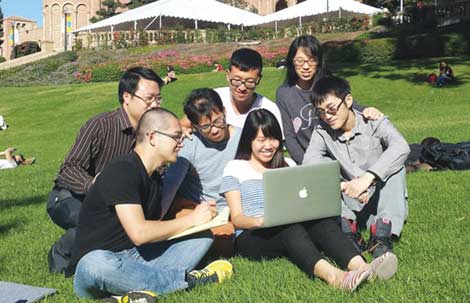Energy Foundation CEO Eric Heitz: Building a 'Beautiful China'
Updated: 2014-10-10 15:58
By ZHENG XIN(China Daily USA)
|
||||||||
There are tremendous economic development opportunities in meeting the air quality, urbanization and energy challenges in China, said Heitz.
"China is so big and growing so fast," he said. "If we can come up with a solution for clean energy and energy efficiency in China, we can do it anywhere else."
The Chinese are good at adapting world-class expertise to China, he said.
Heitz said the foundation has sister organizations in India and Latin America, as well as some European countries. However, its major focus on China is due to the much stronger leadership and a very strong economy to back things up and get them done.
"In the long term, China will provide solutions, as well as many of the technologies that places like India and other developing places will copy and introduce," he said.
According to Heitz, the first impediment and the biggest obstacle so far in bringing the international experts and advanced expertise to China is to understand how the complex Chinese policy machine works.
"Many foreign institutions don't understand how Chinese policy works and how important it is to work within Chinese policy to get the job done," he said.
Regarding some policies that involve two or three ministries, each with its own players, to "understand the environment" is a necessity for a foreign institution in China.
"To provide the best international expertise means you have to understand all of them and to understand where you could have value with very little money," he said.
"Once you understand the environment you can learn how to support the leadership and add value."
With a dedication to advance clean air and clean energy use in China, the foundation, under Heitz's leadership, is becoming more familiar than ever with how to hold discussions with Chinese decision makers and share global best practices to influence the advancement of energy and environment related policy.
However, it was not easy to win the trust of the Chinese government and experts, and it took the partnership of philanthropic investors a long time to build its credibility and trust in the country.
When he first came to China 15 years ago, Heitz was often asked: If you are not here for a profit, what are you here for?
"We overcame that very slowly by building trust, with the Chinese experts and the government," he said.
"We brought the best technical work that we could find globally to address the energy issues and we didn't pretend that we had a strategy — we just introduced the best minds from Chinese and global think tanks.
"To build our credibility, we had to find Chinese experts and build a relationship with them in a humble way."
The biggest challenge for the Energy Foundation China in the next 15 years, according to Heitz, is to get Chinese leadership and think tanks to recognize that a low carbon future is also a sound economic future.
Studies show that if you increase energy efficiency you will not only provide job opportunities but also reduce the fossil fuel use that causes pollution, he said.
He said the country's high level has send out promising messages regarding ways to cap carbon, introducing prices on carbon and other ambitious sector policies, all positive developments in the effort to achieve a low carbon future, he said.
"Just think how exciting it is to have an electric car that can plug into your house, which has a solar panel on it. The whole country does not need to import oil from foreign countries and there is no pollution at all," said Heitz.
"Electric cars, solar panels and various other clean-energy technologies — these should be the future of China."
Having been working for 15 years in the country, the foundation hopes to continue support for the cleanest energy by giving grants to Chinese institutions and experts for another 15 years.
Heitz said he was confident that China, with advanced experience and expertise, could move faster towards achieving an energy efficient future.
It has been demonstrated that China can do things faster than other countries as long as it is determined to act, including establishing air emissions rules.
- Hunan adopts new energy-saving standard
- Positive energy for future
- Zhangjiagang offers free energy-saving sockets
- Energy conservation and environmental protection industry
- Energy conservation and environmental protection industry
- China, US should cooperate in energy: experts
- Beijing to put clean energy bus fleet on the road by 2017
- Xinjiang publishes anti-terror brochures
- Security pact sealed with Afghanistan
- President Xi encourages international cultural exchanges
- Premier Li: China willing to help Afghan infrastructure
- Chinese FM: China, Asia-Pacific become community of shared destiny
- Foreign minister remarks on possibility of China-Japan summit
Most Viewed
Editor's Picks

|

|

|

|

|

|
Today's Top News
VW defends safety of recalled New Sagitar
Former premier makes Hurun philanthropists list
Xinjiang publishes anti-terror brochures
SOHO endows $10m to Yale
Cook and Ma talk about partnership
Language a barrier to healthcare for Asian Americans
China businesses need innovation: VC
Security pact sealed with Afghanistan
US Weekly

|

|
